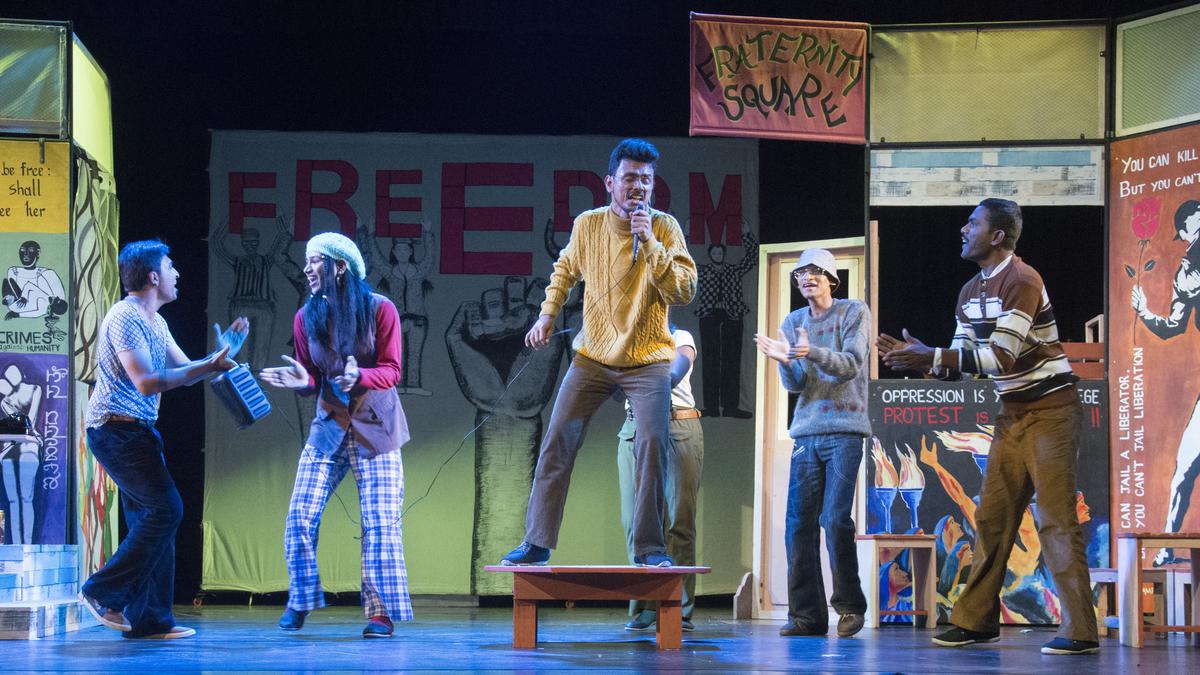
Ninasam Tirugata comes to Bengaluru with two new plays
The Hindu
Ninasam Tirugata, a theatre troupe, brings two new plays to Bengaluru: Aa Laya, Ee Laya and Huliya Neralu. Aa Laya, Ee Laya explores oppression and resistance in apartheid-era South Africa while Huliya Neralu looks at colonialism, capitalism, and existential crisis. Both plays offer thought-provoking commentaries on contemporary issues. Tickets available on BookMyShow and Ranga Shankara box-office.
Started in 1985 and composed mainly of the alumni of Ninasam Theatre Institute, Heggodu, Ninasam Tirugata is a wandering theatre troupe which takes new productions to different parts of Karnataka every year. This year, the eminent theatre institute is travelling with its two new plays — Aa Laya, Ee Laya and Huliya Neralu, which will have its Bengaluru premiere at Ranga Shankara, J.P. Nagar on November 7 and 8.
Aa Laya, Ee Laya directed by H.K. Shwetarani, is based on the play Rhythm of Violence written by Louie Nakosi, adapted to Kannada by Nataraj Honnavali. The complex dynamics of oppression and resistance are the core of the play as it is set against the backdrop of apartheid-era South Africa.
The play unravels the story of a group of Individuals who are from diverse backgrounds and are entangled in a web of racial discrimination, violence, and social injustice. Through powerful dialogues, vivid characters, and symbolic imagery the play explores the psychological and emotional impact of living under an oppressive regime.
Huliya Neralu directed by K.G. Krishnamurthy and written by Chandrashekara Kambara metaphorically explores the interconnected themes of colonialism, capitalism, and existential crisis in the pretext of hunting a tiger. The play takes a look at what it means to see the glaring truth by evading the fake realities.
The central character, Ramagonda, sets out to discover his real father and the play converts this simple process of finding one’s parents into an existential struggle to unravel the complicated meaning of truth. The play constructs imagery of a fairytale world full of superhumans where souls interchange and humans become animated objects. The play serves as a thought-provoking commentary on the contemporary crisis especially when countries across the globe talk about the dictatorship and the origin and the identity of their citizens.
Tickets for both shows — at 7:30 p.m. on both the days — are available on BookMyShow and the Ranga Shankara box-office.













